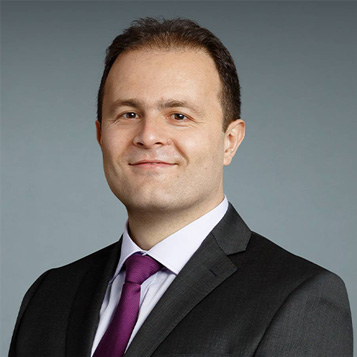Prediction Models of Knee Osteoarthritis Incidence and Progression using Deep Learning

Overview
In this investigation we develop and validate deep-learning models to predict patients’ risk of developing knee osteoarthritis and requiring total knee replacement within five years.
Osteoarthritis (OA) is a debilitating joint disease affecting millions worldwide. Early detection is crucial for effective management and to prevent severe joint damage. Our research focuses on developing cutting-edge tools to predict who is at high risk of developing and progressing with knee OA. By identifying these individuals sooner, we create a vital window of opportunity for early intervention and personalized treatment strategies.
To predict the likelihood of OA development and the potential need for total knee replacement, we are pioneering the use of deep learning models that analyze clinical risk factors and medical images, such as X-rays and MRIs. Our preliminary findings, based on studies with data from the Osteoarthritis Initiative and the Multi-Center Osteoarthritis Study, have shown significant promise. Our goals are to enhance the predictive accuracy, improve the generalizability and validate our models in order to deliver a widely accessible and automated risk assessment tool.
One key challenge in medical imaging analysis—and therefore also in this project—is the variability among scanners and patient populations. To overcome it, our team is developing novel deep-learning preprocessing pipelines and foundational models, then rigorously testing them on real-world patient data from multiple institutions.
Deep learning has the potential to revolutionize how we approach OA, enabling clinicians to identify at-risk patients early and improve the efficiency of clinical trials, leading in turn to faster development of new treatments. Our work is a critical step towards a future where the progression of this common and debilitating disease can be effectively slowed, perhaps even halted.
Keywords
- Osteoarthritis
- Deep Learning
- Predictive Modeling
Project Team

Cem M. Deniz, PhD
Project Lead
External Collaborators
- Gregory Chang, MD, MBA , NYU Langone Health
- Haresh R. Rajamohan, NYU Center for Data Science
- Kyunghyun Cho, NYU Center for Data Science
- Narges S Razavian, NYU Langone Health
- Richard Kijowski, Hospital for Special Surgery
- S. Reza Jafarzadeh, Boston University
- Kenneth S. Lee, University of Wisconsin
- Neil A Segal, The University of Kansas
Publications
- Cigdem O, Hedayati E, Rajamohan HR, et al. Estimation of time-to-total knee replacement surgery with multimodal modeling and artificial intelligence. Comput Biol Med. 2025;193:110364. doi:10.1016/j.compbiomed.2025.110364
- Cigdem O, Chen S, Zhang C, Cho K, Kijowski R, Deniz CM. Estimating time-to-total knee replacement on radiographs and MRI: a multimodal approach using self-supervised deep learning. Radiol Adv. 2024;1(4):umae030. Published 2024 Nov 15. doi:10.1093/radadv/umae030
- Cigdem O, Deniz CM. Artificial intelligence in knee osteoarthritis: A comprehensive review for 2022. Osteoarthr Imaging. 2023;3(3):100161. doi:10.1016/j.ostima.2023.100161
- Kijowski R, Fritz J, Deniz CM. Deep learning applications in osteoarthritis imaging. Skeletal Radiol. 2023;52(11):2225-2238. doi:10.1007/s00256-023-04296-6
- Dam EB, Desai AD, Deniz CM, et al. Towards Automatic Cartilage Quantification in Clinical Trials – Continuing from the 2019 IWOAI Knee Segmentation Challenge. Osteoarthr Imaging. 2023;3(1):100087. doi:10.1016/j.ostima.2023.100087
- Hirvasniemi J, Runhaar J, van der Heijden RA, et al. The KNee OsteoArthritis Prediction (KNOAP2020) challenge: An image analysis challenge to predict incident symptomatic radiographic knee osteoarthritis from MRI and X-ray images. Osteoarthritis Cartilage. 2023;31(1):115-125. doi:10.1016/j.joca.2022.10.001
- Rajamohan HR, Wang T, Leung K, et al. Prediction of total knee replacement using deep learning analysis of knee MRI. Sci Rep. 2023;13(1):6922. Published 2023 Apr 28. doi:10.1038/s41598-023-33934-1
- Desai AD, Caliva F, Iriondo C, et al. The International Workshop on Osteoarthritis Imaging Knee MRI Segmentation Challenge: A Multi-Institute Evaluation and Analysis Framework on a Standardized Dataset. Radiol Artif Intell. 2021;3(3):e200078. Published 2021 Feb 10. doi:10.1148/ryai.2021200078
- Leung K, Zhang B, Tan J, et al. Prediction of Total Knee Replacement and Diagnosis of Osteoarthritis by Using Deep Learning on Knee Radiographs: Data from the Osteoarthritis Initiative. Radiology. 2020;296(3):584-593. doi:10.1148/radiol.2020192091
Acknowledgements
This project is supported by R01AR074453.




